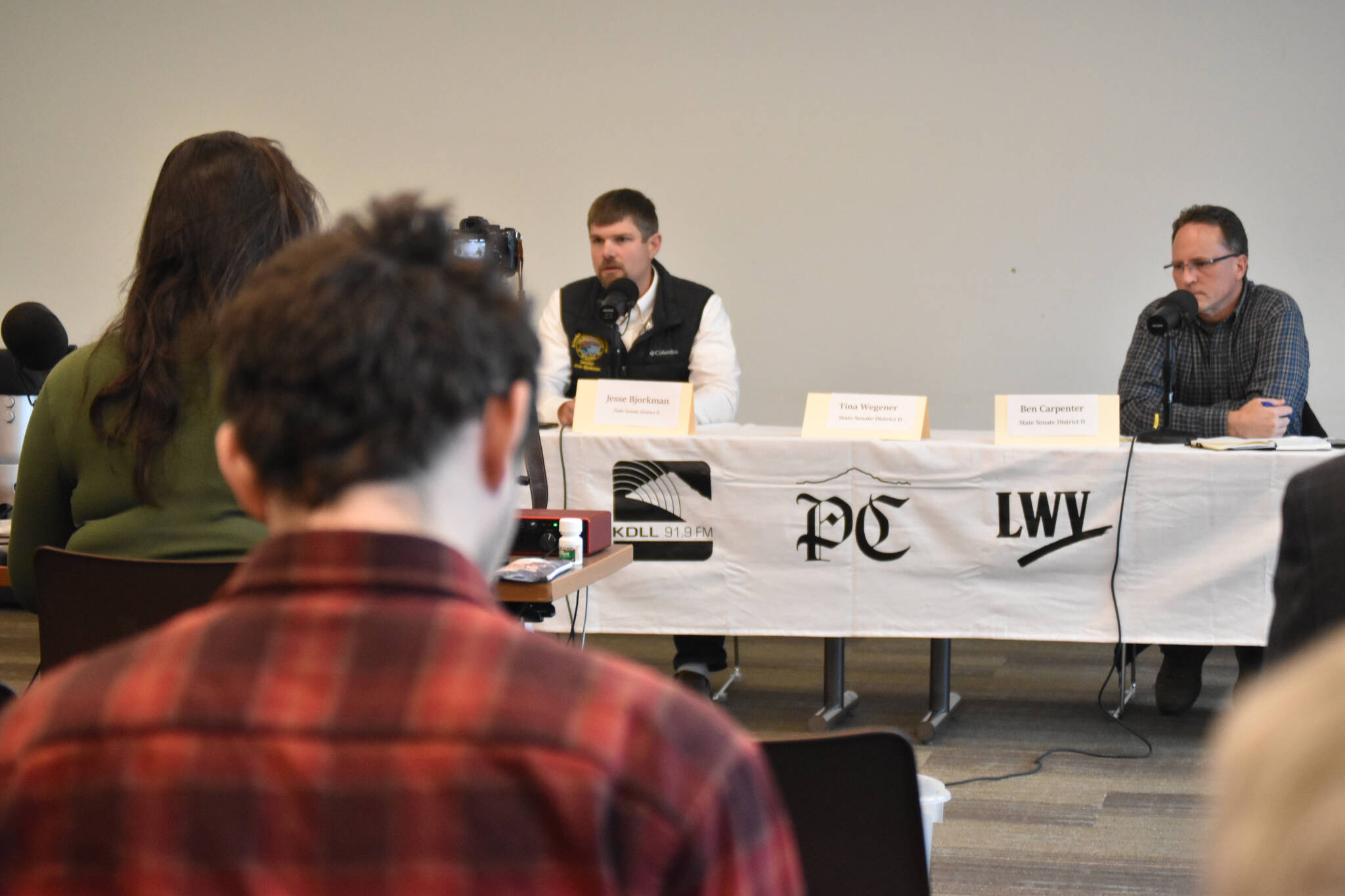Incumbent Sen. Jesse Bjorkman is doing the voters in Senate District D and Alaska a huge disservice by misrepresenting Rep. Ben Carpenter’s position on fiscal issues. Bjorkman is attacking Carpenter over Carpenter’s proposed sales tax as if it is a standalone measure to be layered on top of existing revenue sources.
But it’s not. The sales tax is only one component included in a larger package of bills mainly designed to implement the work of the Legislature’s 2021 Fiscal Policy Working Group. Other parts include a constitutional amendment protecting the Alaska Permanent Fund dividend (PFD), a robust spending cap to limit state spending, and a revamp of the state’s uncompetitive corporate income tax to make Alaska more attractive to investment.
In the context of the total package, the sales tax is mostly a replacement for cuts in the PFD, not an addition. And it is protected from further growth by the spending cap. There is currently no such protection for continued growth in PFD cuts.
Replacing PFD cuts with the sales tax proposed by Rep. Carpenter would be a huge benefit to Alaska families. PFD cuts take money out of the pockets only of Alaskans. The sales tax proposed by Rep. Carpenter would broaden the base to include purchases made by tourists, nonresidents, and others. By broadening the base, the burden on Alaskans would be reduced significantly.
For example, the average-sized Alaska household in the upper middle-income bracket would have approximately $86,500 in income if they received a 50/50 PFD this year. PFD cuts from that level reduced that income by approximately $2,900, or about 3.4%. Even in the unlikely event that all of their income was spent on purchases subject to the sales tax, it would only take approximately $1,700 from the household.
By substituting Rep. Carpenter’s sales tax for PFD cuts, the household would save $1,200, or about 1.4% of income.
The same is true — they would save some amount — of every Alaska household of two with income of about $140,000 and below, of three with income of about $210,000 and below, and of four with income of about $280,000 and below. Put differently, even if they spent all their income on purchases subject to the sales tax, more than 80% of Alaskan families would save money under Rep. Carpenter’s proposal. Because of the broad base, the remaining 20% wouldn’t pay much more.
In misrepresenting Rep. Carpenter’s proposal, Sen. Bjorkman is defending only tourists, nonresidents, and others who might pay a bit more by substituting a sales tax for PFD cuts. He is turning his back on the over 80% of Alaska families who would pay less. That is a disservice not only to Alaskan families that live in Senate District D but also in the remainder of the state.
Because of its positive impact on Alaskan families, Sen. Bjorkman should endorse Rep. Carpenter’s proposal, not misrepresent it. But he hasn’t. Voters should decide accordingly.
Brad Keithley is managing director of Alaskans for Sustainable Budgets.

